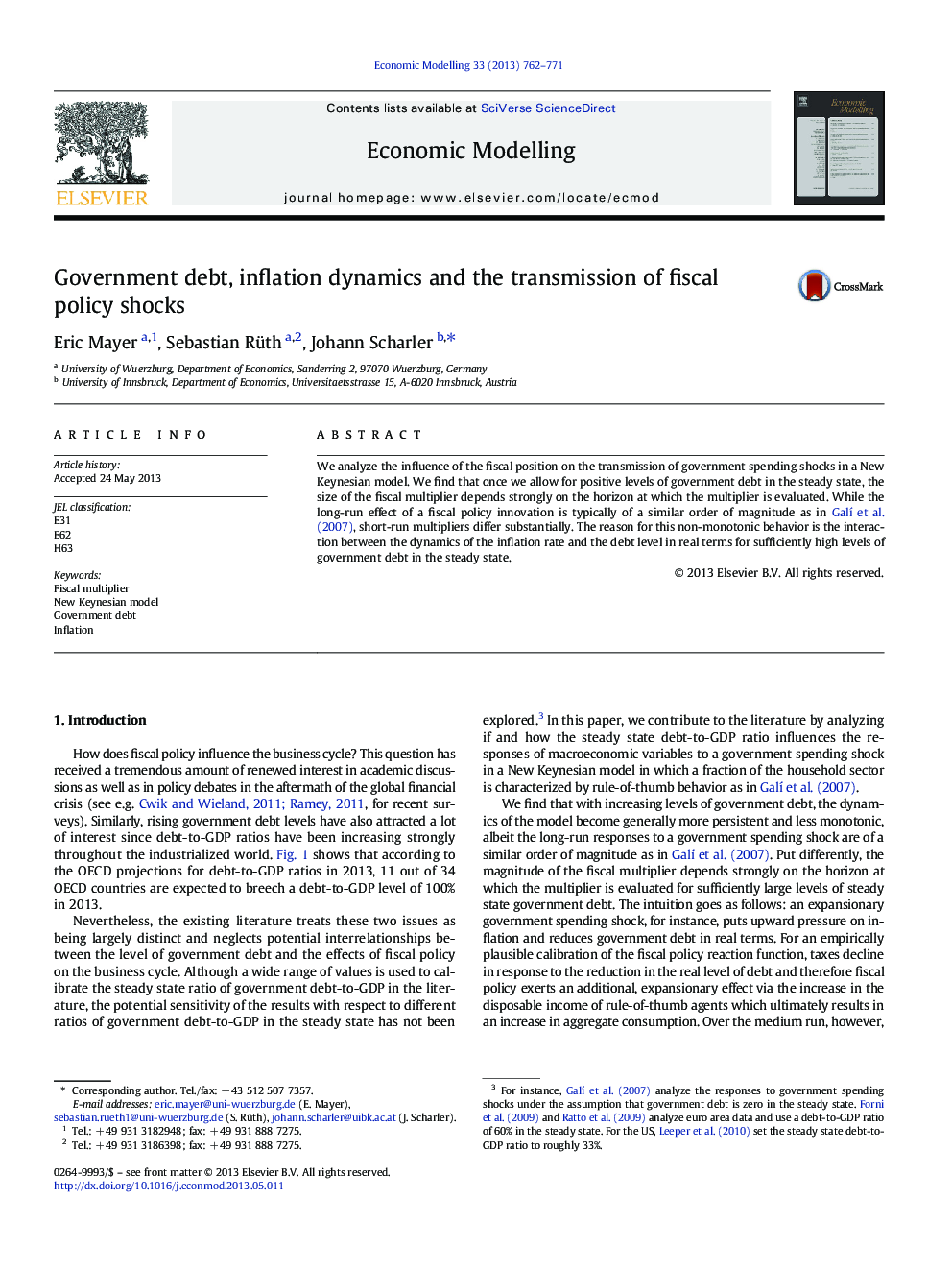| Article ID | Journal | Published Year | Pages | File Type |
|---|---|---|---|---|
| 5054506 | Economic Modelling | 2013 | 10 Pages |
Abstract
We analyze the influence of the fiscal position on the transmission of government spending shocks in a New Keynesian model. We find that once we allow for positive levels of government debt in the steady state, the size of the fiscal multiplier depends strongly on the horizon at which the multiplier is evaluated. While the long-run effect of a fiscal policy innovation is typically of a similar order of magnitude as in Galà et al. (2007), short-run multipliers differ substantially. The reason for this non-monotonic behavior is the interaction between the dynamics of the inflation rate and the debt level in real terms for sufficiently high levels of government debt in the steady state.
Related Topics
Social Sciences and Humanities
Economics, Econometrics and Finance
Economics and Econometrics
Authors
Eric Mayer, Sebastian Rüth, Johann Scharler,
